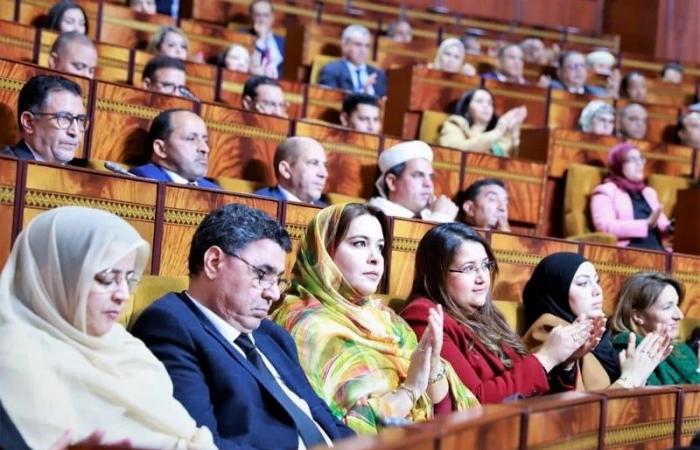Despite the introduction of the principle of parity in the 2011 Constitution and the planned creation of a body dedicated to parity and the fight against discrimination, this has still not seen the light of day. Recent government mandates, in which parties with varied orientations have succeeded one another, have not made it possible to make this promise a reality. Indeed, obstacles still hinder the political participation of women in Morocco, according to a recent study published by the Moroccan Institute of Political Analysis (MIPA).
The study called “The principle of political parity is stagnating in Morocco” prepared by Ikram Adnani, teacher at Ibn Zohr University in Agadir, affirmed that there are still a good number of factors leading to the decline in the political participation of women in Morocco.
According to the researcher, the Constitution of 2011 marks a decisive turning point in the promotion of women’s participation in Moroccan political life, by introducing for the first time the principle of parity, a concept previously absent from previous constitutions which only recognized the equality of the sexes . This principle quickly became a central issue in the discourse of feminist and human rights movements, leading to several legislative reforms aimed at strengthening the fight against all forms of discrimination against women, after the failure of the quota system.
However, although the Moroccan legal framework supports the principle of parity, the political participation of women remains insufficient. Even with the increase in the quota to 90 seats during the last legislature, representation outside of these reserved positions has not progressed significantly, said the same source.
The researcher explained that an Authority for parity and the fight against all forms of discrimination was created, in accordance with article 19 of the Constitution. Made up of a president and 24 members chosen for their competence and integrity, this body’s mission is to formulate legislative recommendations and promote the principles of equality and parity.
However, despite its importance and its constitutional framework, this body remains inactive, which harms the advancement of women’s economic, social and cultural rights. Furthermore, although reforms have been introduced in various legislations, such as those relating to the House of Representatives and political parties, the reality on the ground shows that female representation in political institutions remains unsatisfactory. Currently, in a government of 28 ministers, only 7 women occupy a position.
The 2021 legislative elections saw the election of 95 women out of 395 seats, representing 24.3% of those elected. On the other hand, only 5 women were elected without using quotas, which remains very low. In other bodies, such as the Chamber of Councilors, women represent only 12% of elected officials, although their presence is a little more significant in regional (38.5%) and municipal (26.64%) councils. It should be noted that progress has been made with the election of women at the head of major municipalities such as Rabat, Casablanca and Marrakech, as well as at the presidency of a region.
Despite legislative progress, the path towards real parity and tangible change in the representation of women in Morocco’s political structures remains strewn with pitfalls, requiring increased political will and concrete measures to transform commitments into tangible results, said the author of the study.
In recent years, although significant efforts have been made to improve the representation of women in decision-making positions, political parties, which should promote parity, often favor male candidates, thus reinforcing gender stereotypes that perceive men as natural leaders.
The lack of support for women to access decision-making positions, combined with persistent economic disparities, with only 20% female participation in the labor market in 2021, limits their chances of success. Cultural factors also contribute to this situation, as many surveys show that the majority of the population, both male and female, view men as more suitable for leadership positions.






